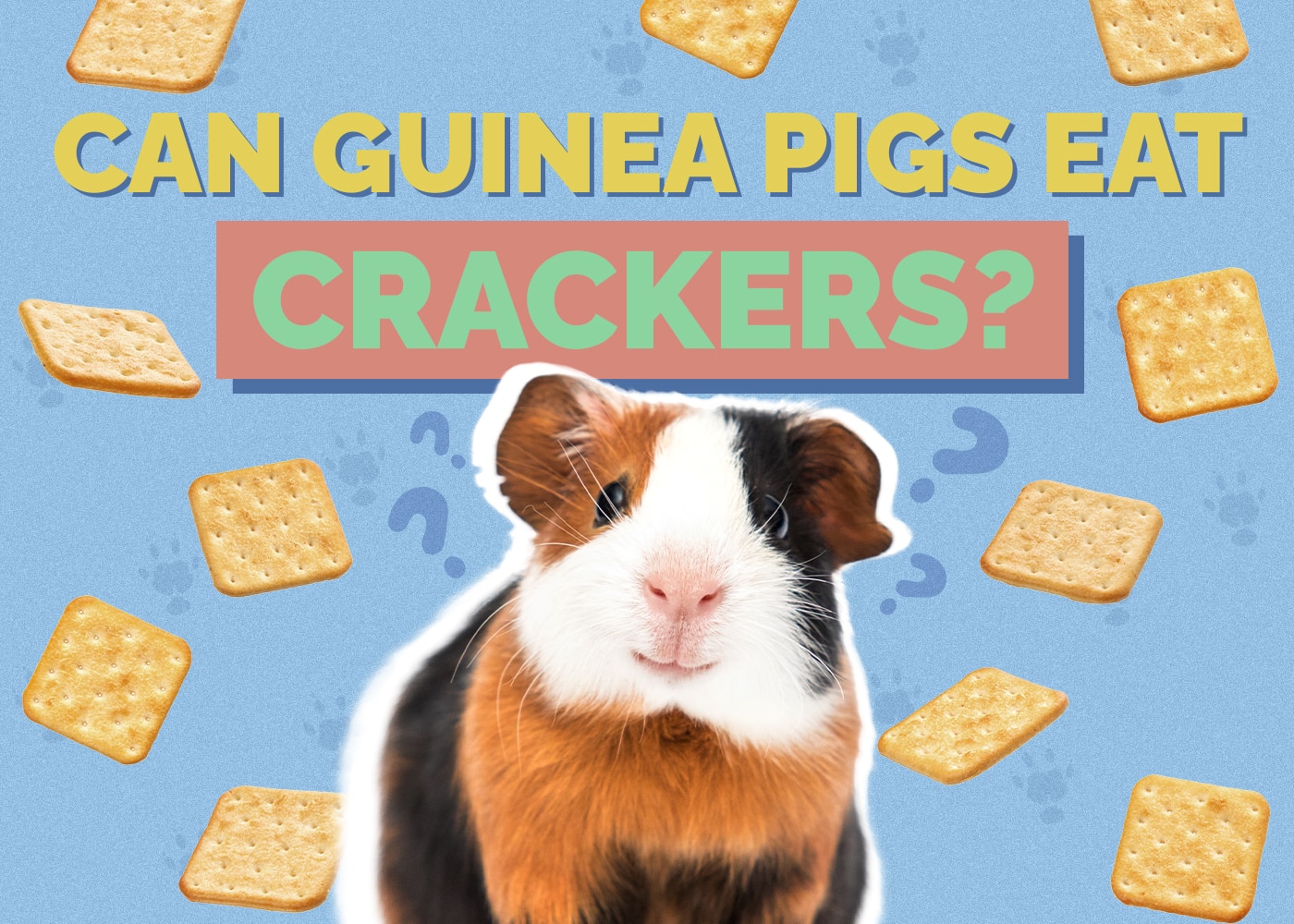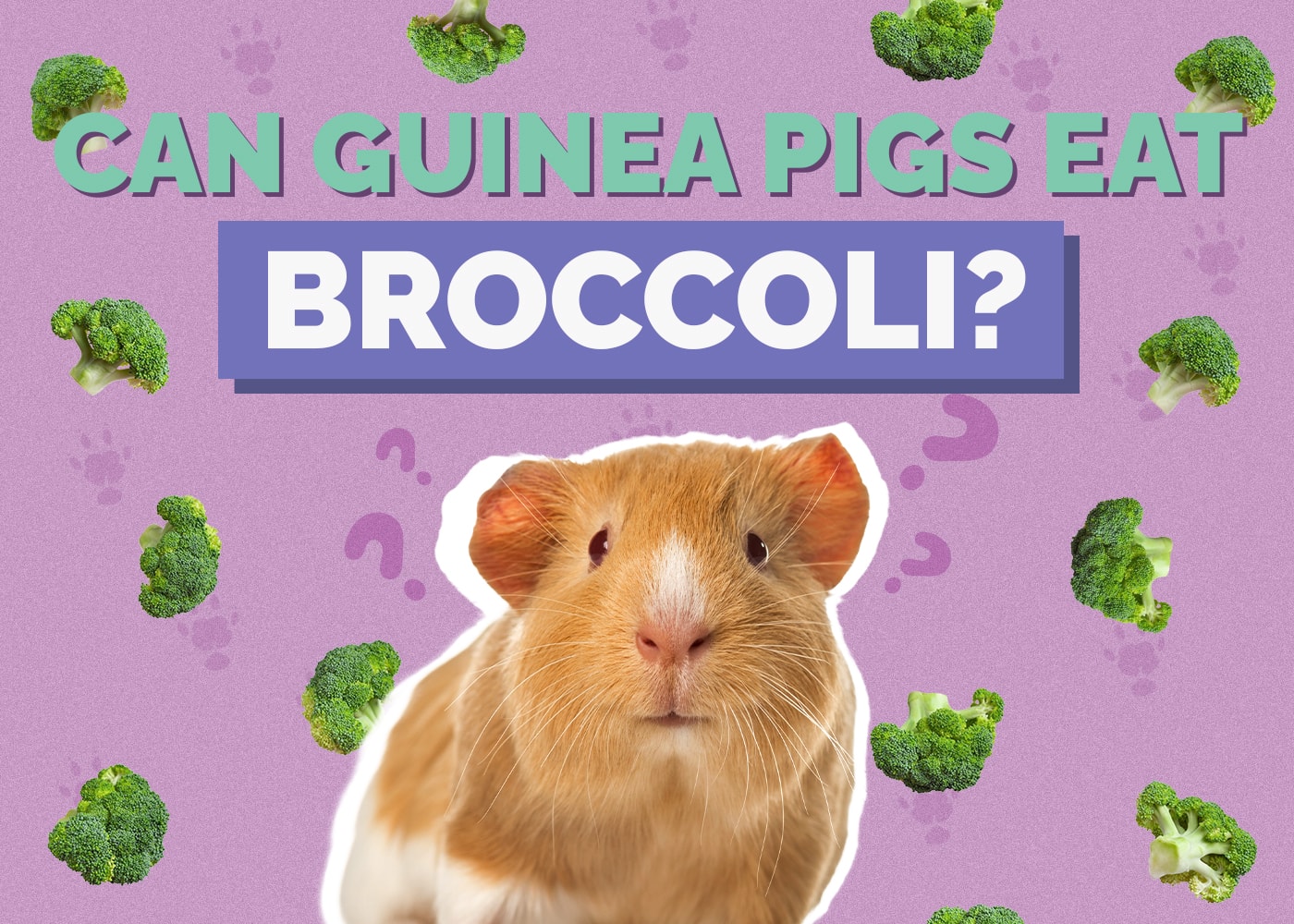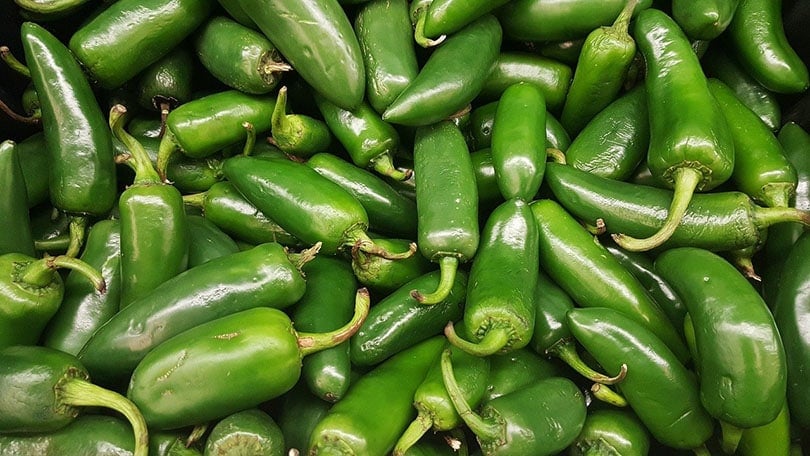What Not to Feed Guinea Pigs – 10 Toxic or Harmful Foods
Updated on
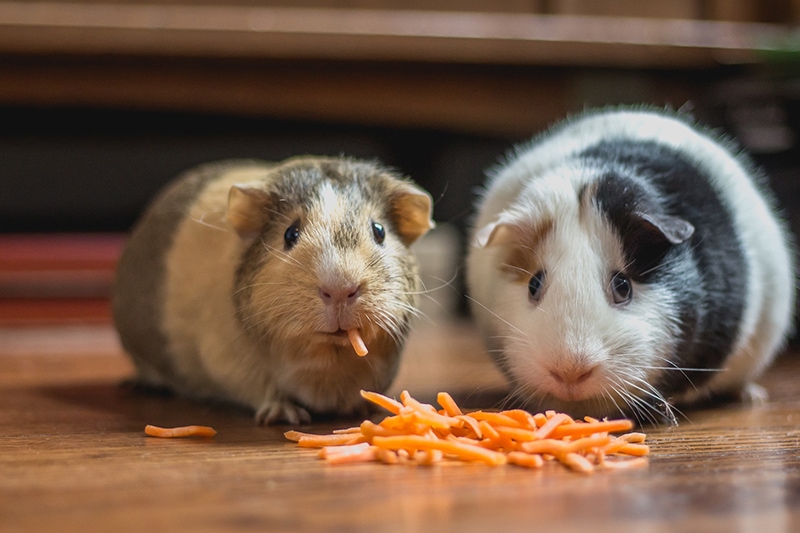
There are always certain foods that different animals cannot handle, whether due to their preferred diet, their gastrointestinal system, what they need to thrive, and more.
For guinea pigs, this is no different. They have certain dietary and physical needs to live a full, healthy life lives and get everything all the nutrients they need to survive. This can include different vitamins and nutrients, whether herbivores or carnivores (or omnivores!) as well as, what’s good for their teeth, and digestion more.
With this, there are also certain foods that you should not feed your guinea pig. Continue reading for a list of these foods and tips for care.
The 10 Toxic or Harmful Foods for Guinea Pigs
1. Nuts and Seeds
While some rodents love nuts and seeds, they should not be given to guinea pigs. Nuts and seeds are high in fat, and this can cause digestive issues.
2. Meat
Meat is another food that can cause digestive issues for guinea pigs. This animal is a herbivore, so they have no need for meat in their diet.
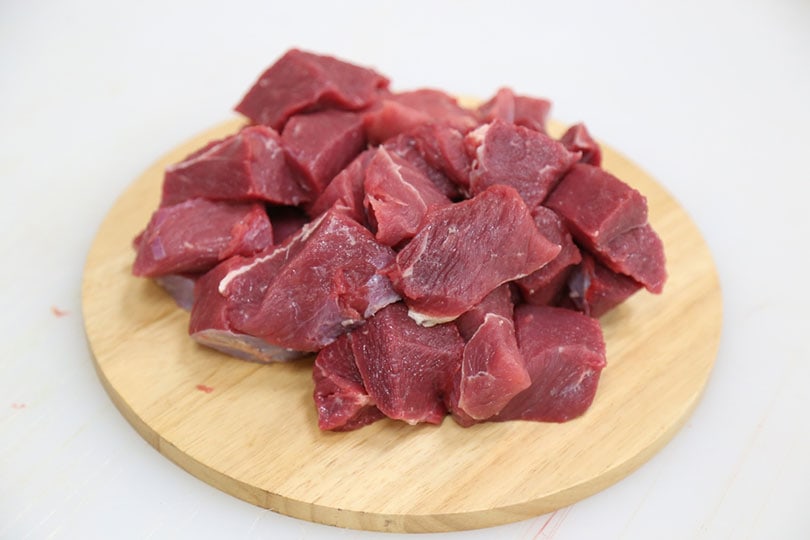
3. Tomato Stems
The red part of the tomato is fine for a guinea pig. But stay away from the green parts, like the stem and vine. This part of the tomato plant is toxic. Some guinea pigs are also quite sensitive to the acidic juice from tomatoes, so if you notice irritation around their mouth after they have been eating them, it’s best to steer clear.
4. Lawn Clippings
Some people think that grass clipping would be a lovely treat for guinea pigs, but you should avoid giving it to them. The grass might have been polluted with diesel or petrol from the lawnmower. Grass clippings could also have other toxic plants mixed in that could harm your piggie.
5. Avocado
While these are a favorite fruit among humans, they should not be fed to guinea pigs. Avocados contain persin, which can cause respiratory problems for guinea pigs.
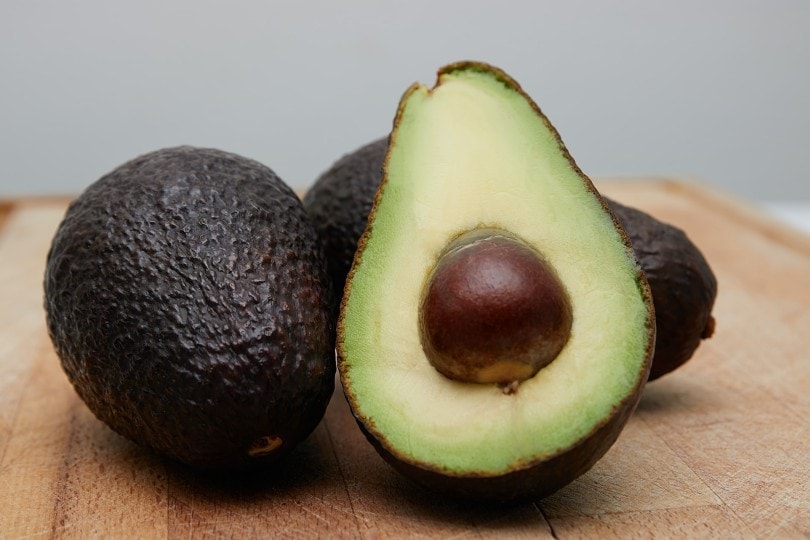
6. Onions and Garlic
These alliums are a no-go for cats and dogs; however, some people might not know that these are also harmful for guinea pigs. The chemical in onions and garlic can disrupt the flow of red blood cells.
7. Dairy Products
Guinea pigs cannot process dairy. Foods like cheese, ice cream, or yogurt can cause a stomach upset in your little piggies.
8. Potatoes
Although they have nutrients, potatoes should not be given to guinea pigs because they are high in carbohydrates. Feeding your guinea pig potatoes can lead to obesity.

9. Chocolate
This sweet treat should not be given to any pet. The sugar and dairy are bad news, but most importantly, Is it because of the sugar, dairy, and caffeine? While these components are not healthy for your guinea pig, the chemical theobromine is lethal.
10. Sweets (sugar, breakfast cereal, donuts, etc.)
Yes, we humans like a sweet treat once in a while! But things like candies, cookies, and anything with refined sugar will make your piggie overweight.
What Should You Feed Your Guinea Pig Instead?
The most important food to have provided for your guinea pig is timothy hay. This food is what they would find in the wild and graze on, so their stomachs are meant to digest it. Hay has the right amount of protein and calcium and allows them to chew to grind down their teeth. It should be kept in an environment where it won’t get caught under water or excrement and become moldy. Pellets are also essential for guinea pig health, but be careful that they don’t have too much of them.
Although some vegetables are on the list of what not to feed your guinea pig, they can safely ingest most some leafy greens and herbs. This list includes romaine lettuce, snow peas, cucumber, and more.
Final Thoughts
It’s important to learn what is healthy for your guinea pig to eat before you start trying out different things with them. For example, you might think they are similar to other ground creatures who eat nuts and seeds, but these creatures don’t eat the same way. In fact, their digestive tract is much more similar to a horse than a squirrel!
Other than providing them the correct food, they also need a constant supply of fresh and clean water. Keeping their habitat clean and providing the right foods will improve their digestive and dental health, and result in very content little piggies.as well as overall.
See also:
- How Long Can Guinea Pigs Go Without Food or Water? Vet-Reviewed Facts
- Can Guinea Pigs Eat Peanut Butter? Vet-reviewed Facts & FAQ
- Can Guinea Pigs Eat Sweet Potatoes? Vet Approved Nutritional Value & Facts
Featured Image Credit: Bonnie Kittle, Unsplash


